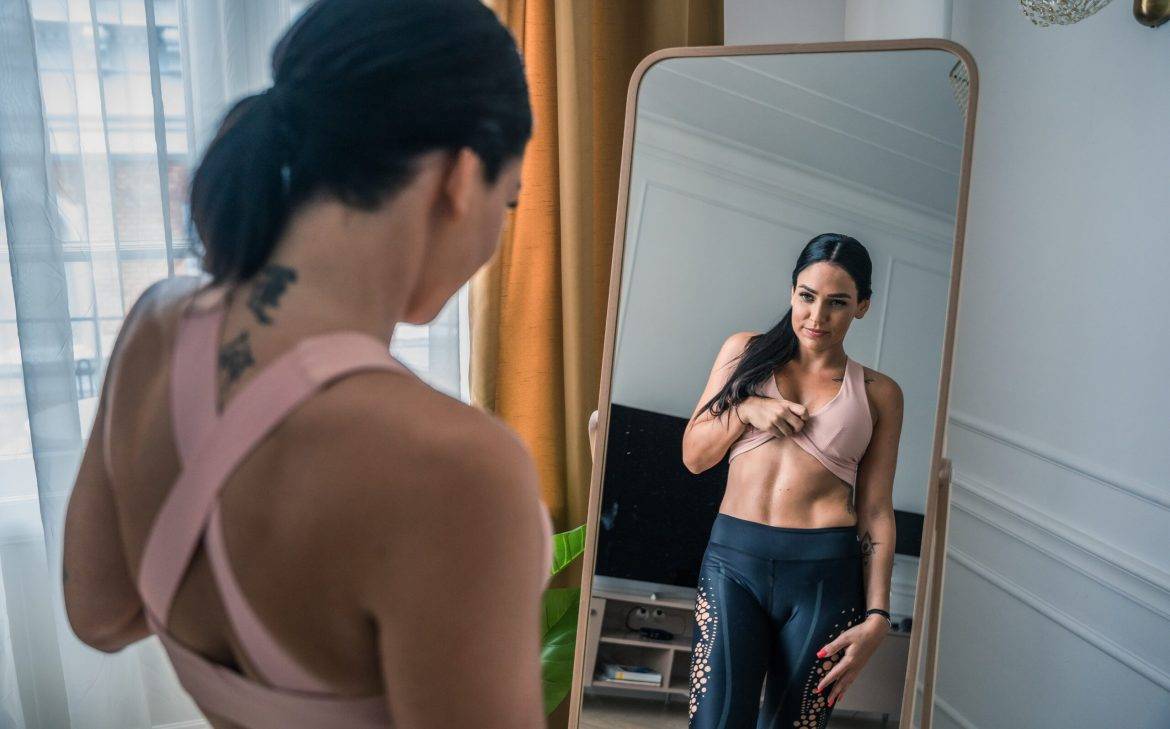
Unfavorable Body Image:
‘Body image’ is a term that we can use to describe how we feel and think about our body shape. Body image is much more than what we see when we stand in front of the mirror. While we contemplate ourselves, memories, assumptions, generalizations pass through our minds.
If all this results in a negative or an unfavourable body image, the risk of suffering from emotional disorder called body dysmorphia increases.” Body dysmorphic disorder is a mental health disorder in which you can’t stop thinking about one or more perceived defects or flaws in your appearance — a flaw that appears minor or can’t be seen by others. But you may feel so embarrassed, ashamed and anxious that you may avoid many social situations.”
Positive Body Image:
In the positive body image, the person has a clear and real perception of what her body is like. The person can value and appreciate their body, being aware that it is only a part of their whole as a person and that other aspects, such as personality, have a more important value when defining their identity. In this state, the person feels safe and comfortable within her own body.
Negative Body Image:
When a person feels that his/her body appearance doesn’t measure up to what family, society, and the media expect, then an unfavourable body image can arise.
People with a negative body image often compare themselves to others and, in doing so, feel bad about not meeting expectations, ashamed, uncomfortable in their bodies.
But here an important factor comes into play: your perception. People with a negative body image often have an unrealistic view of themselves. Thus, they can see their image distorted and unreal, exacerbating reality or exaggeratedly valuing their image.
In this sense, some people with a negative body image develop a disorder that is popular as Body Dysmorphic Disorder (BDD). A person with BDD views her body, or part of her body, negatively and takes extreme measures accordingly (surgery, hormones, etc.). This, in addition to being dangerous because it can lead to mental health problems, such as depression, can also lead to other physical problems.
How is body image formed and developed?
– For the comments that other people make us: Messages and/or explicit or implicit comments that we have received throughout our personal history from family, friends, acquaintances about our body: “what a chubby girl”, “everything ugly is funny” …
– By what we tell ourselves: Our internal dialogue: “since I hate my teeth, they are so small”, “as much as they tell me otherwise, my legs are not pretty”…
– Through the social funnel: What is socially considered desirable about the physical. Everything that is pressed on social networks, television, social circle. For example, that socially established trouser size as the ideal and used by the most famous. Here social pressure is a very big drawback today for a real and healthy body image.
What influences on the Unfavourable Body Image?
Body image doesn’t develop in isolation. Family, culture, environment including social media platforms, television, film, convey negative and positive messages about our bodies.
For a person with a negative body image, that her body does not match the images promoted by the media is a big problem it becomes problem.
However, the image that is conveyed as an ideal is often unnatural, especially when it comes to advertising. We are exposed to unrealistic and, on many occasions, unnatural models.
The fashion and beauty industry sets strict canons that the majority of the population does not fit into. But its influence is such that it can affect physical, mental, and physical well-being because not everyone can understand it.
The industry is interested in us being uncomfortable with our bodies. In this way, we will be more interested in buying products to be slimmer or more muscular, to delay the effects of age and/or to appear younger, to appear taller or appear slimmer, etc.
But all of this can create emotional insecurity, which can make a person more susceptible to developing a negative body image. On the other hand, these negative thoughts and feelings can be perpetuated through interactions with others.
What can you do to feel better?
Some people think that they have to change their physical appearance first and then feel good about themselves. But, having a good body image is not synonymous with having a great body or an exuberant physique, at all, and you don’t need to have a perfect body to have a good body image.
We ask you several important questions: Do you not like your body image, nor are you able to see anything positive in it? Do you constantly stop thinking about that specific feature of your physique that you cannot accept? Are you not able to accept Your current appearance? Would you like to change something about your physical appearance, although everything around you tells you that you don’t need it? Do you stop going to places like the beach or the pool because you are not able to cope with seeing yourself and being seen in a swimsuit?
If you have answered positively several of the previous questions, your body image may be negative and negatively influence your self-esteem. Put yourself in the hands of a professional’s therapist, experts in positive psychology, who will help you identify the problem and find your way to a positive body image together.
https://www.mayoclinic.org/diseases-conditions/body-dysmorphic-disorder/symptoms-causes/syc-20353938
